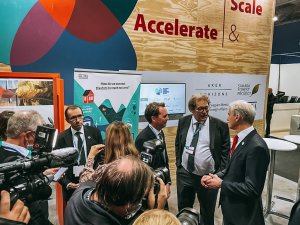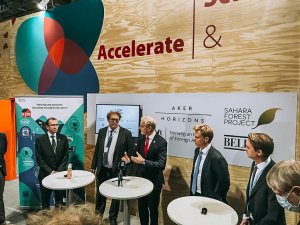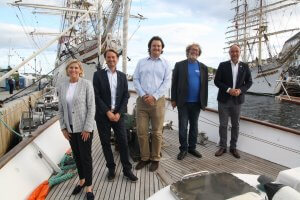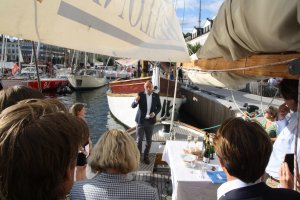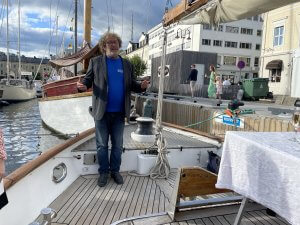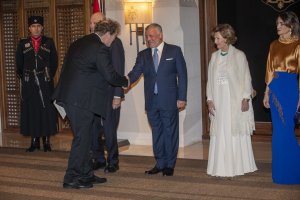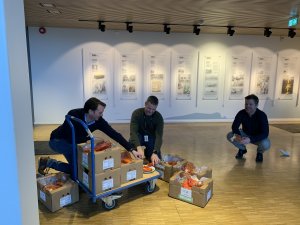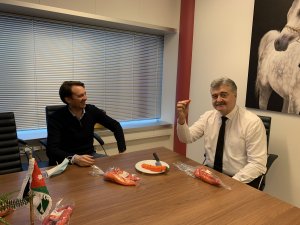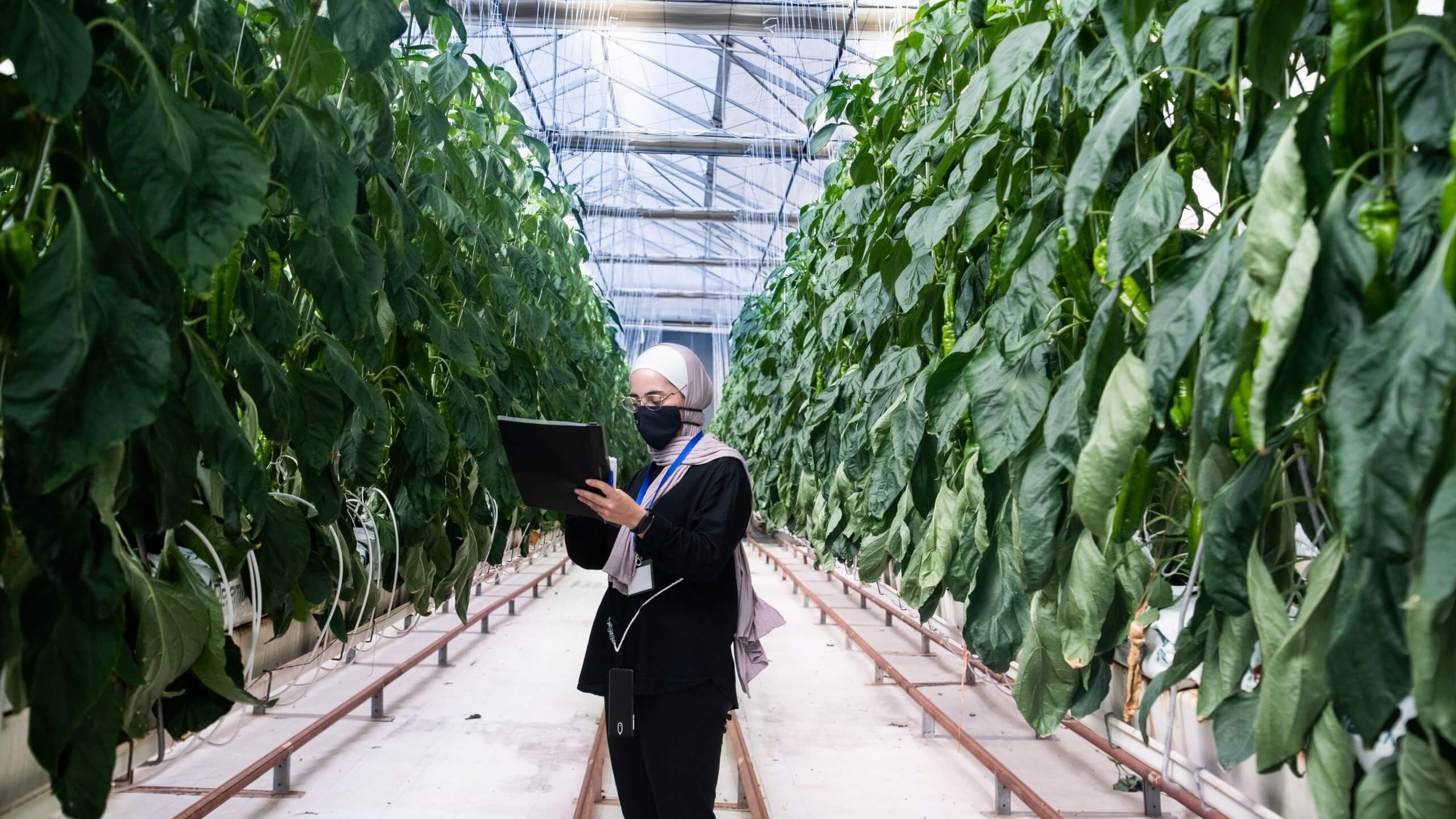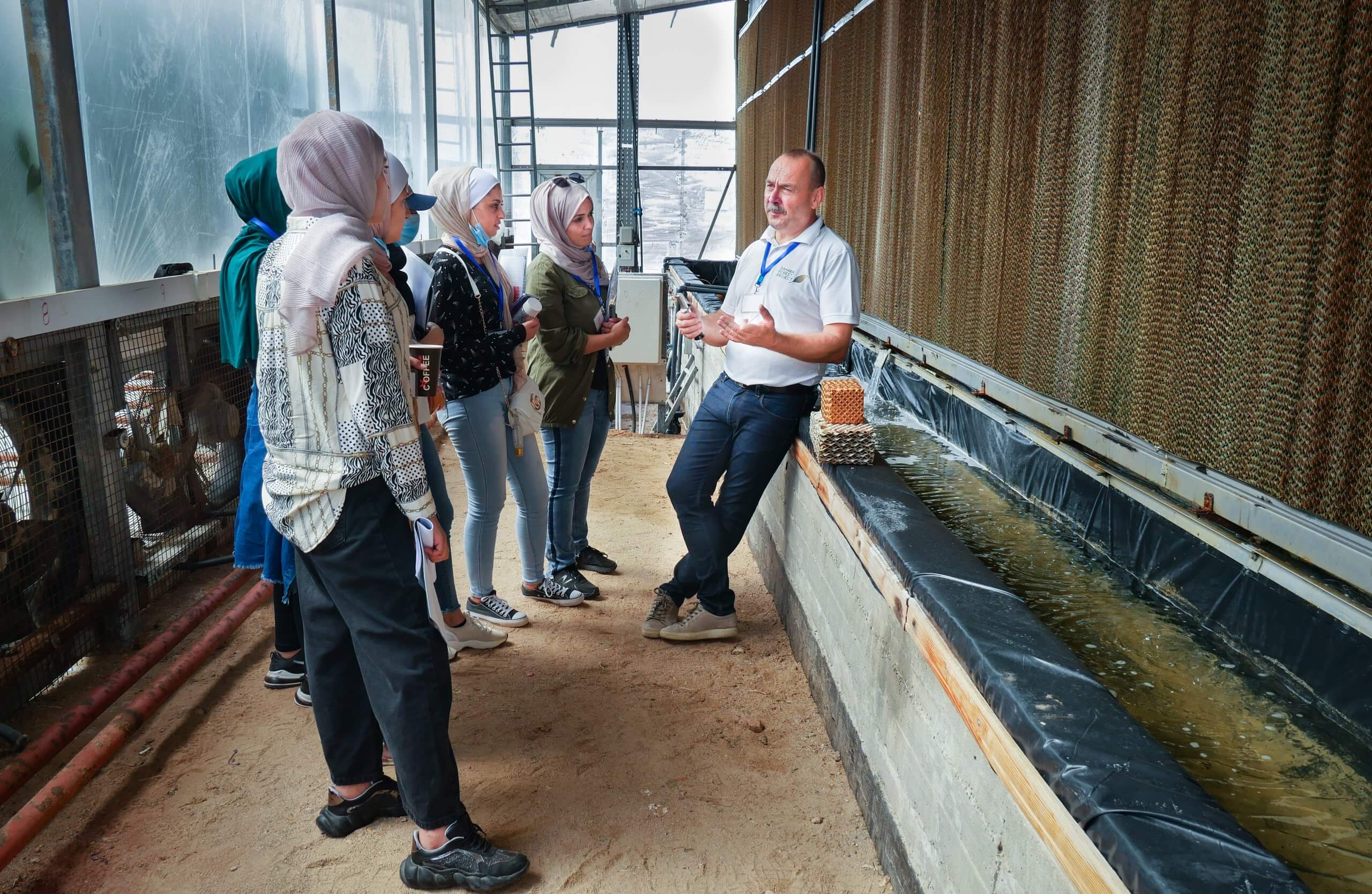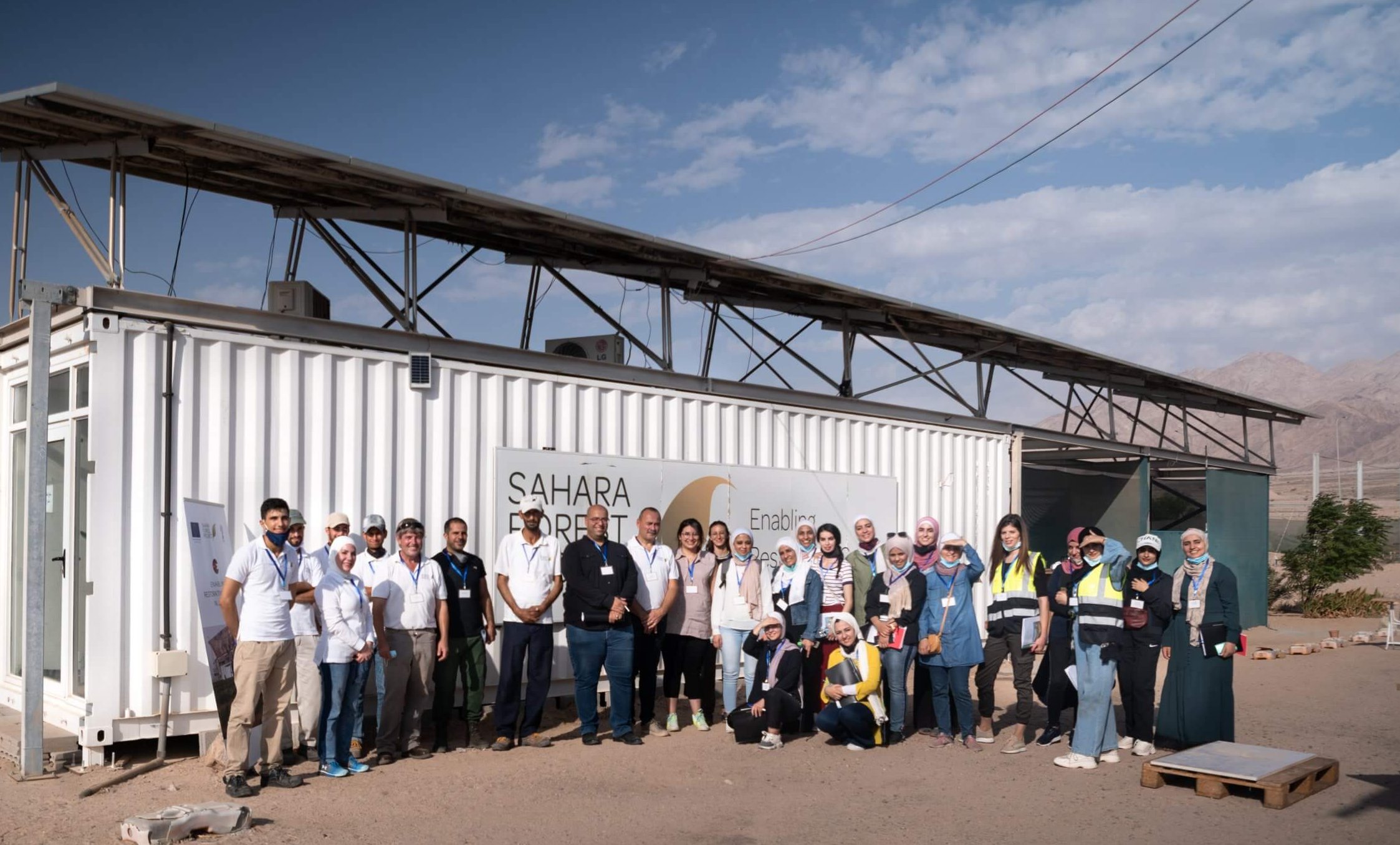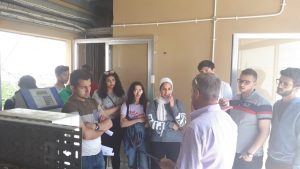The Sahara Forest Project, together with Bellona Foundation, opened the pavilion in the Blue Zone at COP26. At the opening ceremony it was announced that the Norwegian Ministry of Foreign Affairs has decided to continue funding the Sahara Forest Project in Jordan with 4.2 million NOK.
Present at the opening was Norwegian PM Jonas Gahr Støre and Minister of Climate Espen Barth Eide. “This conference can be perceived as another attempt to reduce the difference between our goals and what we are actually able to achieve. Then it is important to have harmony between the larger scale and smaller scale projects to achieve overall goals. We have been together in Jordan and seen what’s possible to do, which is not an easy project in a political difficult regional context, but Sahara Forest Project has been able to do this and I acknowledge those efforts”, said PM Jonas Gahr Støre.
The Norwegian funding will make it possible to further develop solutions that will change the global agriculture industry from being one of the main sources of pollution to one of the most climate smart sectors.
“Sahara Forest Project is using what the world has enough of; saltwater, sun, CO2 and deserts, to produce what the world needs more of; food, water, and clean energy”, General Manager Kjetil Stake.
The additional funding from the Norwegian MFA will further Sahara Forest Project’s ambitious commitments of continuing to upscale the climate smart production of vegetables that can be exported to Europe and Norway.
“The majority of the vegetables eaten in Norway are produced in countries other than Norway, and the production of imported produce affects us directly through gas emissions, water scarcity, and desertification. It is therefore important to prove that climate solutions work for sustainable agriculture in dry areas”, added Stake.
Furthermore, the additional funding will allow Sahara Forest Project to further develop the training program for Jordanian female engineers, together with Al Hussein Technical University. In its pilot phase, 30 female engineers have participated in the training that aims at developing the skills needed for working in innovative and sustainable agri-tech and food production in response to Jordan’s water, energy, and climate action priorities.
